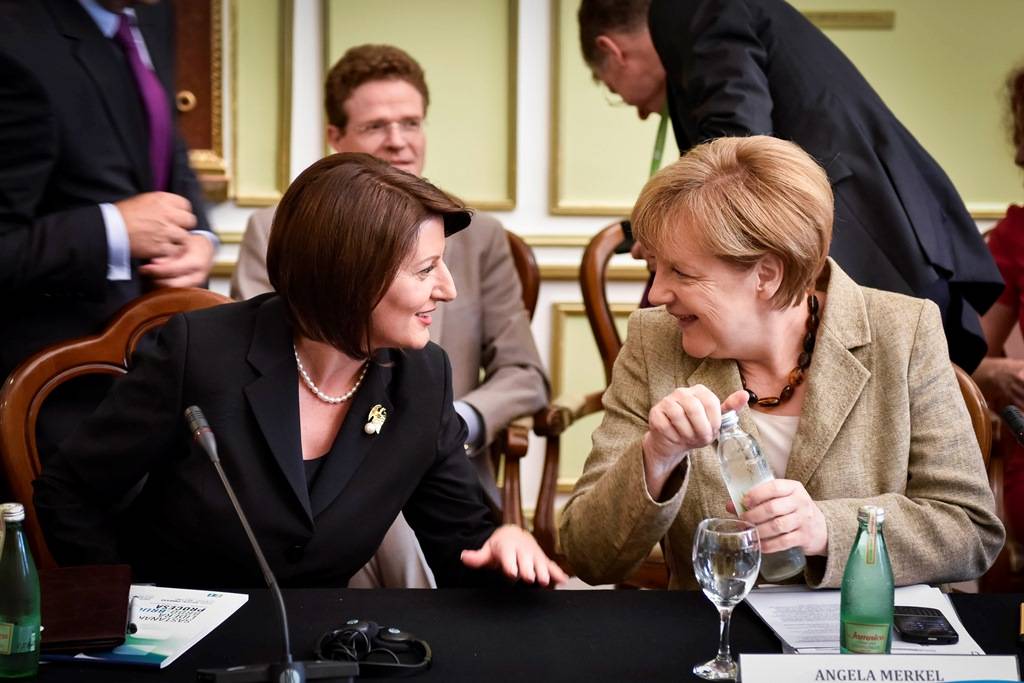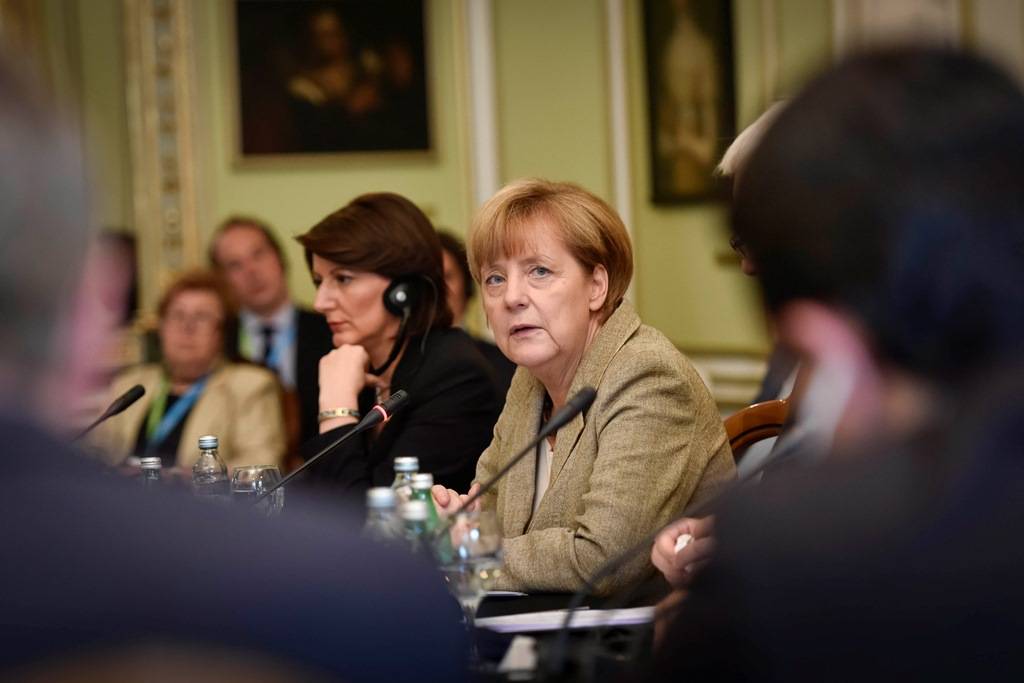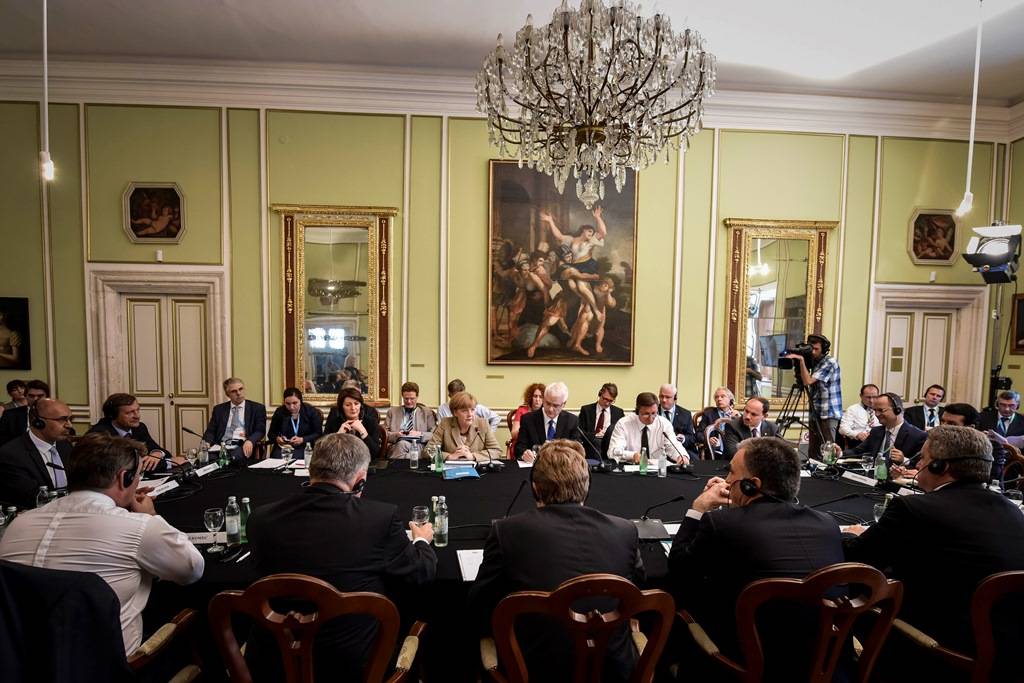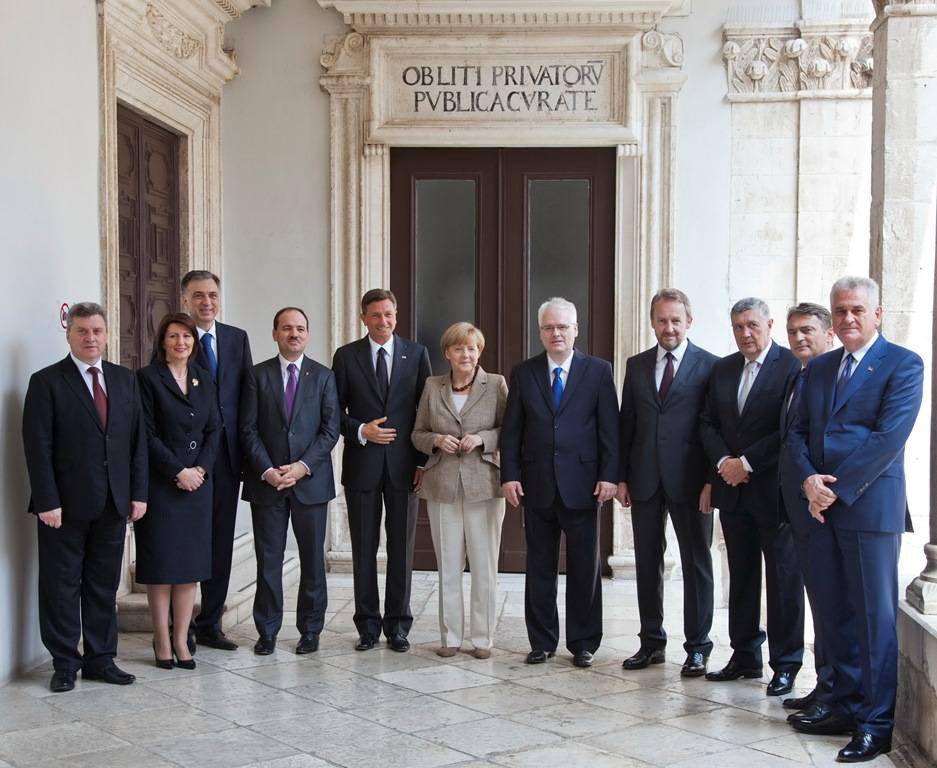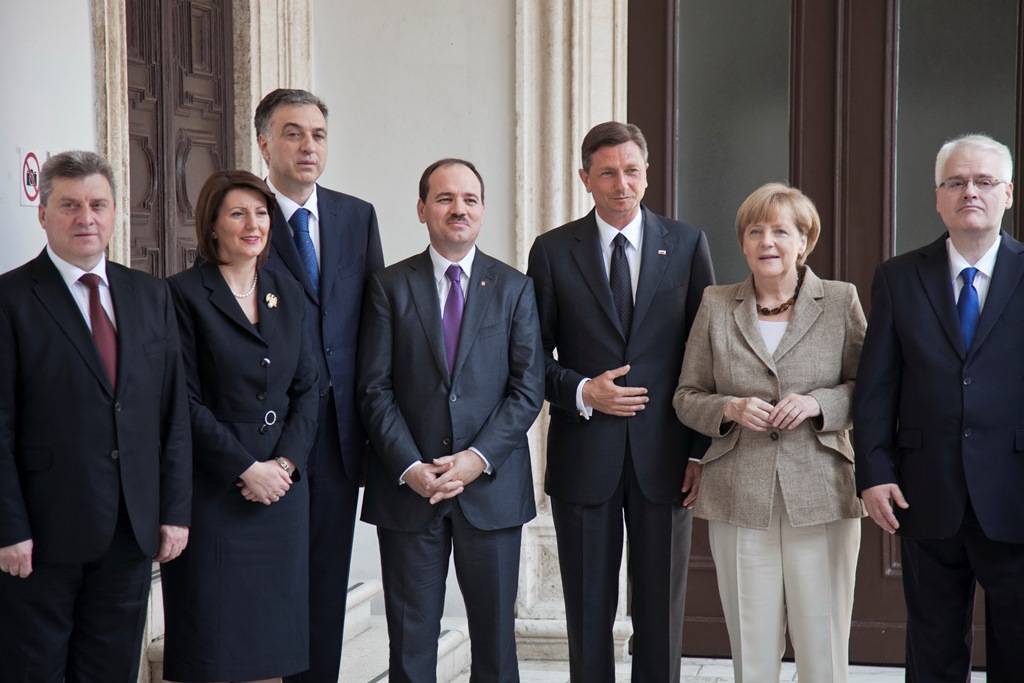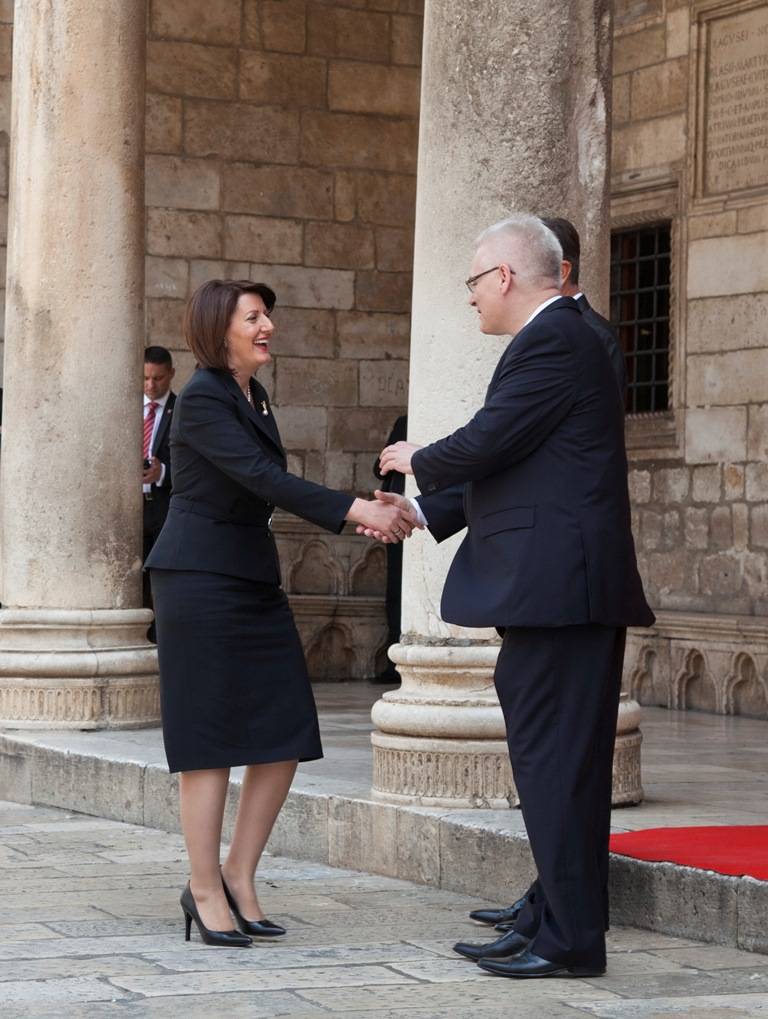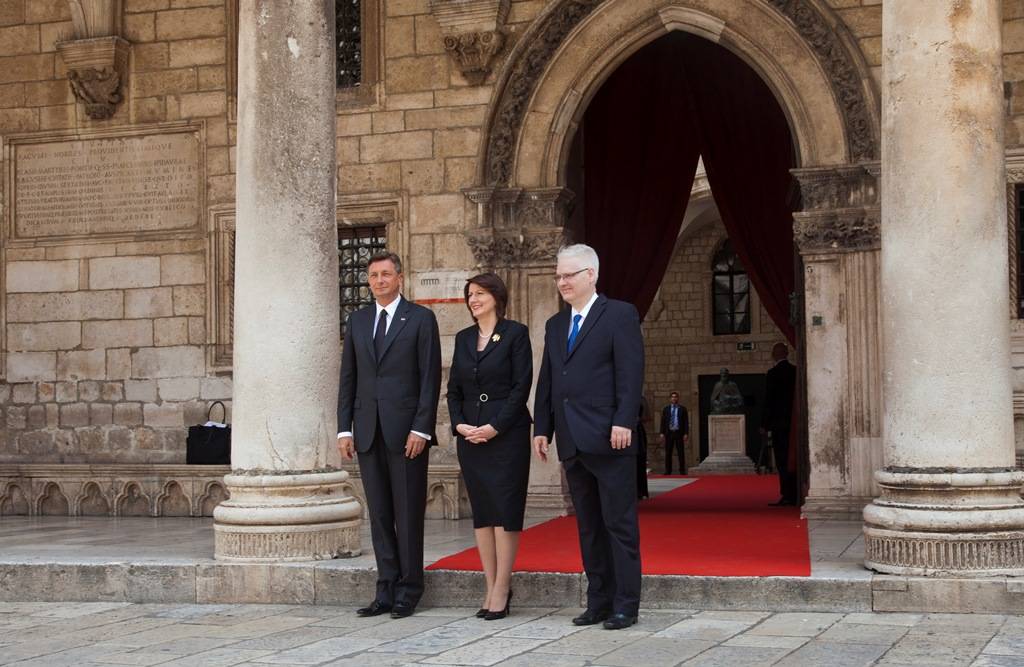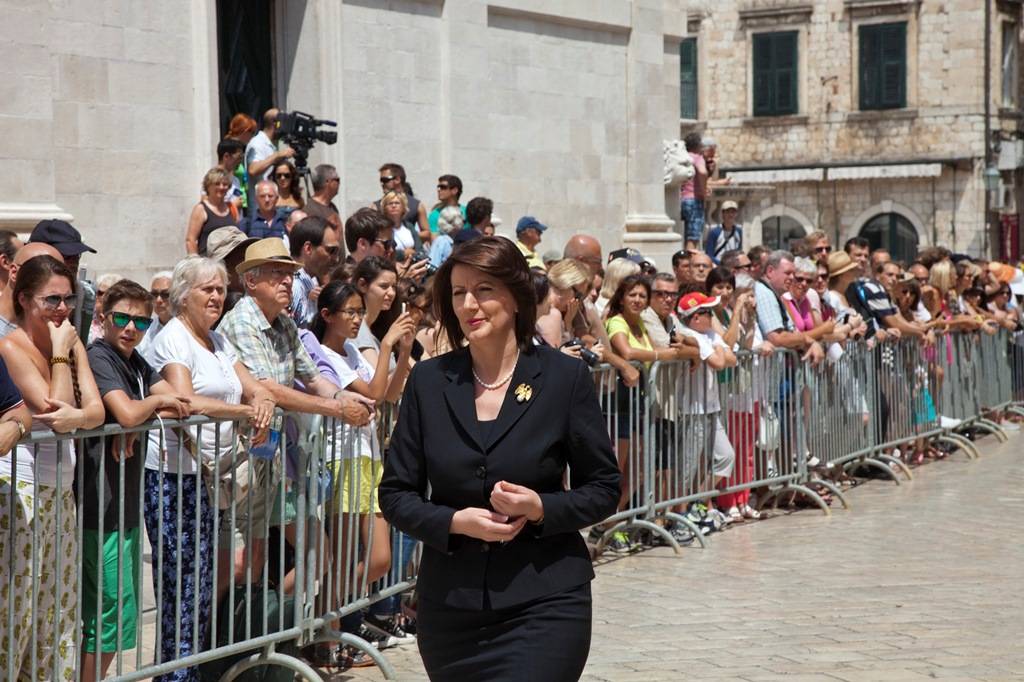President of the Republic of Kosovo, Mrs. Atifete Jahjaga, is attending the third consecutive Brdo-Brioni Summit, being held this year in Dubrovnik, Croatia. At the Summit she is accompanied by the Foreign Affairs Minister, Mr. Enver Hoxhaj.
Host of the summit, a joint initiative of the Slovenian and Croatian Presidents for the provision of support to the countries of the western Balkan region in their European integration processes, is the President of Croatia, Mr. Ivo Josipovic; Summit is attended by the Presidents of the countries of the region.
This summit is also attended by the Chancellor of the Federal Republic of Germany, Ms. Angela Merkel.
President Jahjaga held a speech today during the proceedings of the summit, which we are publishing below:
Chancellor Merkel,
I want to join my counterparts from the region to welcome you to this summit and thank you for your participation. I am pleased that we meet in this format that best speaks of the change that has occurred in these past few years in the region, which would have been impossible without Germany’s valuable assistance and your constructive role in encouraging us to embrace reforms and open up the European Union perspective for our specific countries.
Membership in the European Union remains the main agenda that unites us, that holds peace and stability in the region, and the catalyst for change, for strengthened cooperation and partnership between us and the citizens of the countries we represent. We do not seek shortcuts; instead our progress toward the EU should be conditional on our willingness to transform our countries and to normalize the relations between our states. I want to emphasize that your continuous support and engagement to keep this perspective viable for all the countries will determine the future of this region.
My country, the Republic of Kosovo, is determined to move forward. We have spent a good portion of the last few years cementing our democracy – we have consolidated our institutions, ensured their democratic functioning and have persistently reached out to minority communities to integrate them fully in Kosovo’s political and social life. This internal success of state-building has also reflected internationally as countries around the world have continued to recognize our statehood. I want to thank the countries of the region for supporting us in this process of consolidation.
Over the last two years, we have dedicated much time to improving our relationship with Serbia. As we have demonstrated in the EU-facilitated dialogue with Serbia, we did not wait for normalization to happen, but we created normalization, first and foremost with the Serbian community in Kosovo, by ensuring their full integration, and then with Serbia, in finding a common ground to address many of the issues that reach at the heart of the challenges that we face as a region – namely the establishment of good neighbourly relations, strengthening of the rule of law, trans-border crime and corruption, to identify a few. Several agreements are now in place, but the real success of this process should be measured with their full implementation. And by that I also mean political courage and willingness to break with the past, and to move forward in partnership and cooperation.
As we move beyond the hostilities of the 1990s, I hope we will be able to create a different dynamic between the region and the rest of Europe that will help address our mutual concerns and the challenges that are linked. Kosovo, as all the countries in the region, is facing serious economic challenges, mainly due to the underperformance of the private sector, but also the isolation and lack of access in European markets and beyond. Over 30 percent of Kosovo’s population is unemployed and the targeted group are the young, which in Kosovo make about half of the population.
Changing these trends will be our main challenge in the next decade and I am convinced that we can only reverse them by working jointly with each other as a region to improve our infrastructure, and with the rest of Europe to be included as a value in its midst.
Our region is dynamic and has much to offer, not only in terms of natural resources and its energy potential, but also and most importantly in human capital.

